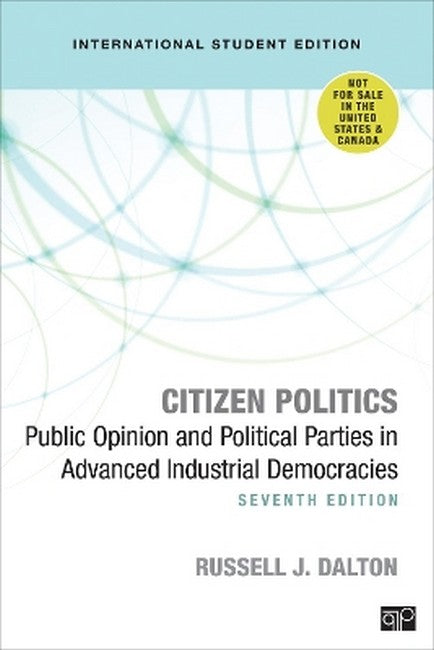Russell Dalton is a professor at the University of California, Irvine and former director of the Center for the Study of Democracy. His research and teaching focuses on the changing nature of citizen politics in contemporary democracies. He has received a Fulbright Research Fellowship, a German Marshall Fund Fellowship, Barbra Streisand Center Fellowship and POSCO Research Fellowship. He has served on the boards of the American National Election Study, the British Election Study and the Comparative Study of Electoral Systems. Among his recent authored or edited books are The Apartisan American (2012), Political Parties and Democratic Linkage (2011), Citizens, Context and Choice (2011), The Good Citizen (2009), Oxford Handbook of Political Behavior (2007), Citizens, Democracy and Markets around the Pacific Rim (2006), Democratic Challenges, Democratic Choices: The Erosion of Political Support in Advanced Industrial Democracies (2004), Democracy Transformed? The Expansion of Citizen Access in Advanced Industrial Democracies (2003), and Parties without Partisans: Political Change in Advanced Industrial Democracies (co-editor, 2001). He has also appeared in six feature-length Hollywood movies.
Request Academic Copy
Please copy the ISBN for submitting review copy form
Description
List of Tables and Figures Preface Acknowledgments CHAPTER 1. Introduction Comparing Public Opinion across Nations Choosing Nations to Compare A New Style of Citizen Politics Suggested Readings Notes PART I. POLITICS AND THE PUBLIC CHAPTER 2. The Nature of Citizen Beliefs The Supercitizen Reality versus a Theoretical Ideal Elitist Theory of Democracy Political Sophistication Reconsidered Politics and the Public Suggested Readings Notes CHAPTER 3. How We Participate Modes of Participation Voting Campaign Activity Direct Contacting Communal Activity Protest and Contentious Action Wired Activism Changing Publics and Political Participation Suggested Readings Notes CHAPTER 4. Who Participates? The Civic Voluntarism Model Who Votes? Campaign Activity Direct Contacting Communal Activity Who Protests? Internet Activism Comparing the Correlates of Different Activities Participation and the Democratic Process Suggested Readings Notes PART II. POLITICAL ORIENTATIONS CHAPTER 5. Values in Change The Nature of Value Change The Distribution of Values How Values Change The Consequences of Value Change Social Change and Value Change Suggested Readings Notes CHAPTER 6. Issues and Ideological Orientations Socioeconomic Issues and the State Cultural Issues Foreign Policy Opinions Left/Right Orientations Public Opinion and Political Change Suggested Readings Notes PART III. THE ELECTORAL CONNECTION CHAPTER 7. Elections and Political Parties The History of Party Systems Four Contemporary Party Systems The Structure of Political Alignments Party Systems Today Suggested Readings Notes CHAPTER 8. The Social Bases of Party Support The Logic of Social Groups and Voting Social Class and the Vote Why Is Class Voting Decreasing? Religion and the Vote Other Social Group Differences The Transformation of Social Cleavages Suggested Readings Notes CHAPTER 9. Partisanship and Voting A Sociopsychological Model of Voting Partisan Attitudes The Consequences of Partisanship Partisan Dealignment Causes of Dealignment The Consequences of Dealignment Cognitive Mobilization and Apartisans Politics in a Dealigned Era Suggested Readings Notes CHAPTER 10. Attitudes and Voting Choice Principles of Issue Voting Position Issues and the Vote Policy Cleavages and the Vote Performance Issues and the Vote Candidate Images and the Vote The End of the Causal Funnel One Electorate or Many? Citizen Politics and Voting Behavior Suggested Readings Notes CHAPTER 11. Political Representation Collective Correspondence Dyadic Correspondence The Party Government Model The Impact of Representation Suggested Readings Notes PART IV. DEMOCRACY AND THE FUTURE CHAPTER 12. Citizens and the Democratic Process The Types of Political Support Declining Confidence in Authorities Views of Political Institutions Support for a Democratic Regime Community Support Dissatisfied Democrats The New Style of Democratic Politics Suggested Readings Notes Appendix A: Statistical Primer Appendix B: Major Data Sources Appendix C: 2014 International Social Survey Codebook References Index

